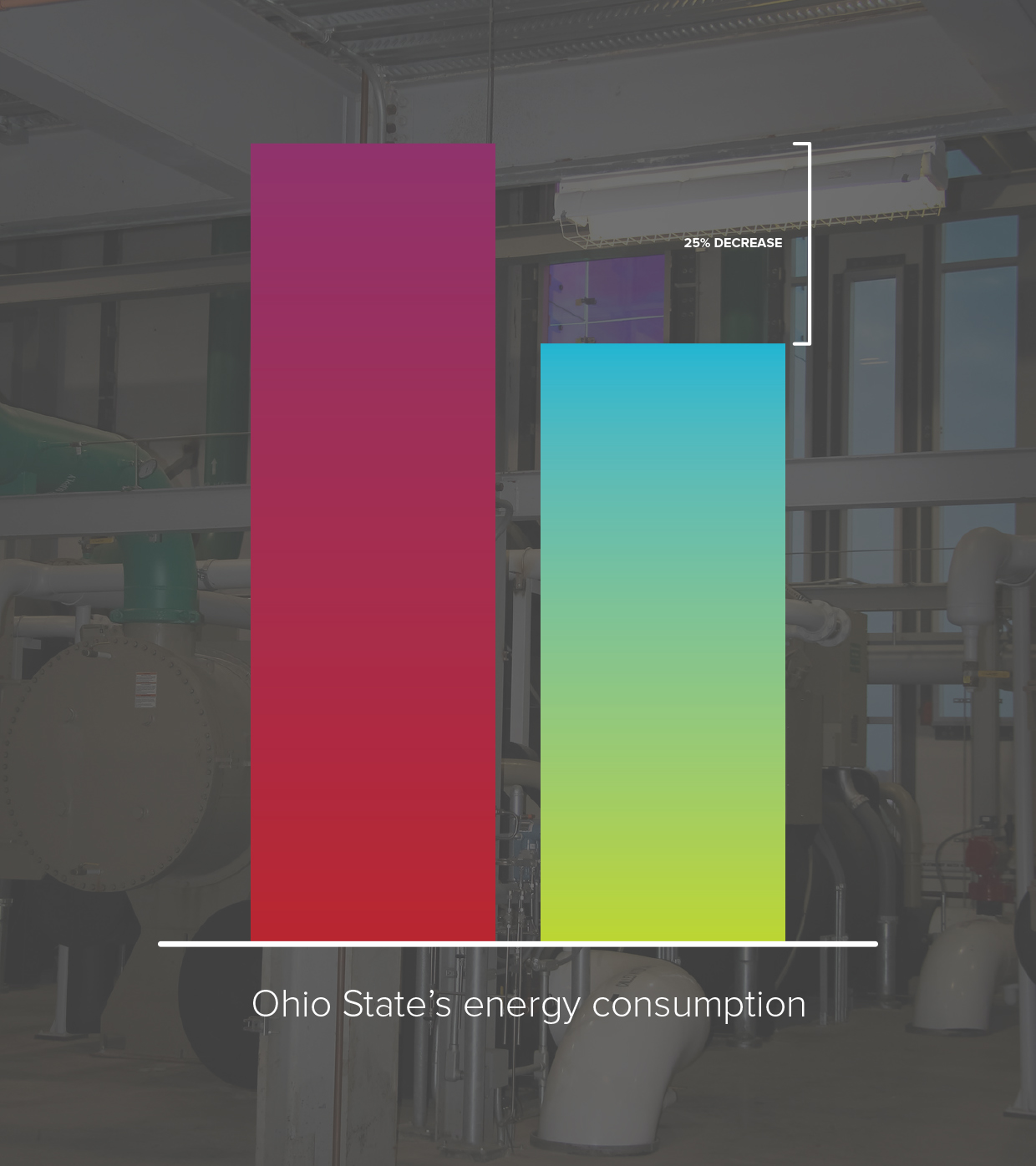Our Commitment
Our agreement with The Ohio State University is designed to conserve energy and further Ohio State’s academic mission.
Supporting Sustainability at Ohio State
We have made specific and meaningful commitments that will help Ohio State become an international leader.
Energy conservation collaboration to help the university meet its energy efficiency goals.

Ohio State Energy Partners will collaborate with Ohio State to continuously look for ways to extend energy conservation measures across the entire campus, which the university will approve before implementation. These measures will help the university to meet or exceed its target reductions in overall energy consumption.
A smart meter is a digital communication tool that monitors, collects and communicates a building’s energy usage in real time. This technology was installed in over 350 campus buildings and provides crucial statistics to manage and reduce overall energy consumption.
After an extensive campus audit, legacy lighting systems were replaced with energy-efficient LEDs in a variety of locations. These upgrades are generating energy savings and helping to standardize the lighting systems used throughout campus.
This project included the replacement of 1,786 outdoor lamps with LEDs and 449 discolored globes. The new lights are more energy efficient and provide a brighter glow for enhanced safety at night. The installation of Wi-Fi antennas/cables in 250 globes has improved network coverage throughout campus.
Over several phases of work, the HVAC systems within all Columbus campus buildings are being evaluated for energy-efficiency improvements. Energy conservation measures (ECMs) are then recommended based on the opportunities present in the system. Common ECMs include: heat recovery installations, adaptive occupancy optimizations, and condensate return improvements, among many others. Currently there are 5 approved BESO phases; the first 2 phases are substantially complete and accounted for 48 campus buildings.
The partnership will propose a series of interrelated energy conservation measures tailored to Ohio State’s specific needs. Future energy conservation measures utilizing the newest technologies will be developed in cooperation with the university.

Minimum of 25% reduction in energy consumption within 10 years.

